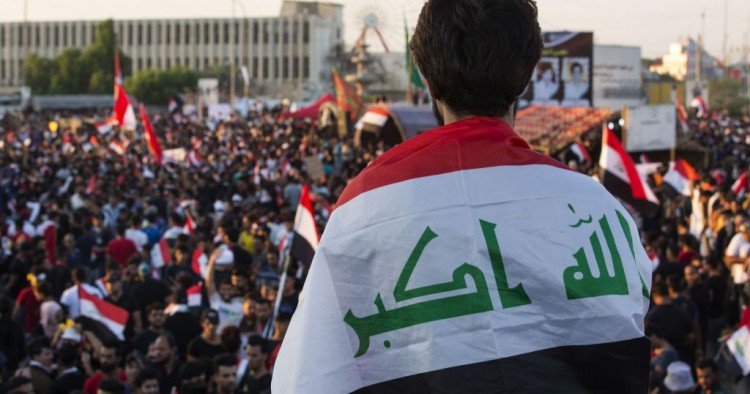Violence erupted again in Baghdad Monday afternoon as protesters continued to block traffic and security forces sought to keep vital arteries and bridges open. The protests from Baghdad through almost all of southern Iraq also saw protesters try to close roads leading to the main port at Umm Qasr and oilfields in Basra province on Sunday. Some labor unions back calls for a general strike, closing schools and many government offices in Baghdad and southern Iraqi cities on Sunday and Monday.
In response to the deepening crisis, on Oct. 31 Iraqi President Barham Salih said Prime Minister Adel Abdul-Mahdi would resign if the key political blocs could first agree on a successor. The two largest blocs, led by cleric and politician Muqtada al-Sadr and former militia commander Hadi al-Amiri, disagree about the path forward. Iran reportedly is mediating between them as it tries to contain the crisis in its next-door neighbor. Iran’s role in Iraq has come under growing criticism in the protest movement. Banners denouncing Iran (and the U.S.) hang in downtown Baghdad. Sunday night three protesters died when the Iranian consulate in the holy city of Karbala came under attack. Iranian mediation might bring the two big political blocs to an agreement on a new government, but the protest movement demands only new, clean faces and won’t readily accept another cabinet drawn from discredited political blocs.
Beyond the argument about finding a new prime minister and cabinet, the protest movement and Sadr demand new elections. President Saleh stated that the constitution requires parliament first pass a new election law and he pledged draft legislation would go to the parliament this week. Some political parties fear new elections, and the parliament could easily drag the question out. The protests, traffic and work stoppages, and sporadic violence are set to continue.
Robert Ford is a Senior Fellow at MEI.
Photo by HUSSEIN FALEH/AFP via Getty Images
The Middle East Institute (MEI) is an independent, non-partisan, non-for-profit, educational organization. It does not engage in advocacy and its scholars’ opinions are their own. MEI welcomes financial donations, but retains sole editorial control over its work and its publications reflect only the authors’ views. For a listing of MEI donors, please click here.













